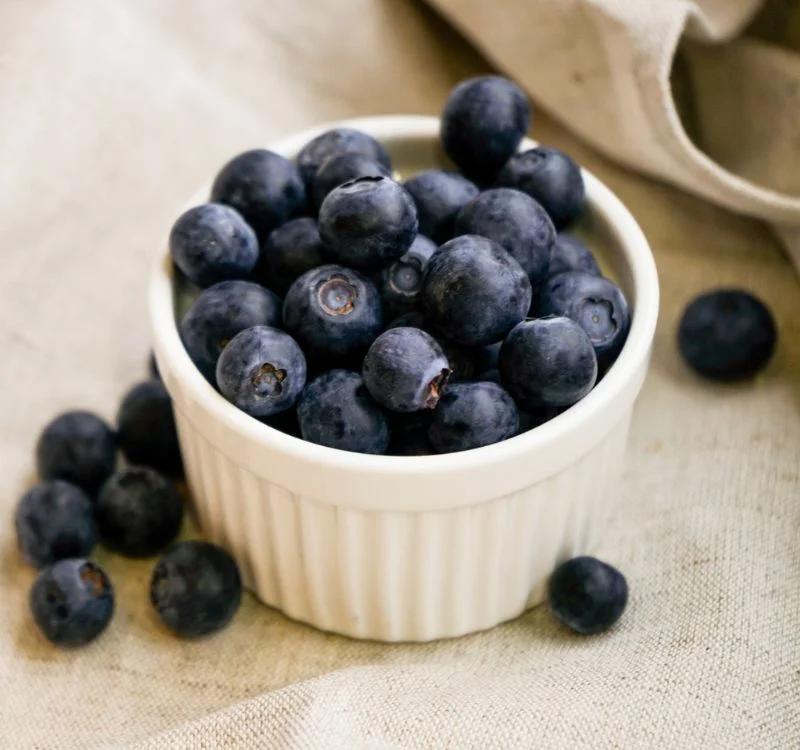Chiku or Sapota During Pregnancy Offers Some Amazing Benefits, Let’s Find Out What They Are!
Jan 13, 2025

A simple fruit rich with delightful taste as well as essential nutrients needed during pregnancy. Chiku, a nutritious fruit during pregnancy fulfills your vitamins, fiber, and energy requirement. How? Let's find out!
Table of Contents:
- Is Sapota Good During Pregnancy?
- Nutritional Value of Chiku
- Benefits of Chiku that Supports During Pregnancy
- How To Eat Chiku During Pregnancy?
- Some Common Side Effects Of Eating Chiku During Pregnancy
- Last Lines!
- FAQs
Chiku, also known as sapota, is a delicious tropical fruit packed with nutrients, making it a great addition during pregnancy. Its rich content of vitamins A and C, along with ditary fiber and natural sugars, provides a healthy energy boost and supports overall well-being. Chiku or sapota is known to strengthen the immune system and promote healthy skin for both the mother and the baby during pregnancy. Easy to incorporate into meals or enjoyed on its own, chiku is a wholesome and tasty choice for expectant mothers. Let’s counter some questions asked about chiku or sapota fruit in pregnancy.
Is Sapota Good During Pregnancy?
Absolutely! Sapota or chiku during pregnancy is usually considered safe and offers several benefits thanks to its vitamins, minerals, potassium and magnesium content. Chiku helps regulate muscle function and strengthen the immune system to fight against bacteria. An optimal condition is necessary during pregnancy, chiku fruit has antioxidant properties that help eliminate free radicals and promote overall well-being for both the mother and the baby.
Nutritional Value of Chiku
Chiku is rich in antioxidants and tannins, offering anti-inflammatory and anti-microbial properties. Other than that, the nutrient content of Chiku or Sapota that supports you during your pregnancy is mentioned below in brief:
Benefits of Chiku that Supports During Pregnancy
Eating chiku during pregnancy might help elevate your pregnancy diet by adding exceptional nutrient content to your daily meals , we have mentioned below some benefits of eating chiku or sapota during pregnancy:
Boosts Energy: Chiku has a high sucrose and fructose content helping women regain and retain energy levels throughout the day during their pregnancy time. Eating chiku during pregnancy assists you in fighting against fatigue and weakness commonly noticed during pregnancy with its rich natural sugar and carbohydrate content.
Regulates Digestion: Constipation is a common concern among pregnant women. Through its fiber rich content chiku supports your digestion during pregnancy, while also reducing nausea and alleviating stomach inflammation.
Strengthens Bones: Stronger bones are essential during pregnancy, chiku provides calcium, potassium and iron content to help strengthen bones during pregnancy.
- Manages Blood Pressure: Eating chiku in pregnancy benefits by regulating your blood pressure and managing your blood pressure with its magnesium and potassium content. Consuming Chikoo fruit can also help to regulate blood pressure in pregnant women.
How To Eat Chiku During Pregnancy?
As we have already discussed the benefits of eating chiku in pregnancy, let us go through some of its recipes to add chiku effortlessly in your pregnancy diet for its benefits:
Chiku Milkshake: Milkshake is the easiest way to consume chiku during your pregnancy period. You will only need to blend some chiku with plain milk and honey or sugar (if preferred) then add a pinch of cinnamon powder for a delightful flavour. Now enjoy a drink filled with nutrients.
Chiku Salad: Chiku salad helps complete your nutrient requirement during pregnancy . To make it, chop fruits you prefer along with fully ripe chiku and dried nuts you like. Mix all fruits and nuts while adding a drip of honey. Enjoy your chiku fruit salad during pregnancy time.
Some Common Side Effects Of Eating Chiku During Pregnancy
Excessive Weight Gain: Chiku fruit is high in calories which might cause excessive weight gain during pregnancy. To avoid excess weight gain, always eat chiku in moderation during pregnancy.
Increase Blood Sugar Levels: Due to its rich natural sugar content, chiku is observed to spike your blood sugar level causing diabetes. To prevent such complications avoid eating chiku fruit excessively during pregnancy.
Last Lines!
To conclude everything about including chiku fruit or sapota in your pregnancy diet, we explored a delicious and nutrient-packed journey of chiku fruit that offers numerous benefits for pregnant women. The exceptional benefits of chiku fruit and its rich content of vitamins, minerals, fiber, and natural sugars makes it an excellent addition to a balanced pregnancy diet. The benefits of eating chiku fruit during pregnancy ranges from boosting energy and supporting digestion to strengthening bones and regulating blood pressure, chiku is a versatile and wholesome choice for meeting the unique nutritional needs of pregnancy. However, moderation is key to avoid potential side effects like weight gain or elevated blood sugar levels. Always consult your healthcare provider to ensure that incorporating chiku fruit into your pregnancy diet is the right choice for you and your baby.
Frequently Asked Questions
Yes, sapota is safe and good during pregnancy. It is rich in dietary fiber, vitamins, and essential minerals like potassium and iron, aiding digestion, preventing constipation, and supporting overall health.
You might notice blaoting, gas or diarrhea due to overconsumption. Also some people may experience sugar spikes due to its high sugar content.
Yes, but wait for 20–30 minutes after eating chikoo. Drinking water immediately may interfere with digestion.
Yes, chikoo can be eaten at night. Its natural sugars may provide a quick energy boost and aid digestion, but avoid overeating close to bedtime.
1–2 medium-sized chikoo per day is a moderate amount. Overeating may lead to excessive calorie or sugar intake.
Oranges: Rich in vitamin C and folate.
Apples: Provide fiber and vitamins.
Berries: Packed with antioxidants and vitamins.
Avocados: Great source of healthy fats and folic acid.
Mangoes: Provide vitamin A and C.
But, eat everything in moderation and consult with your doctor.
Papaya: It may induce contractions due to its latex content.
Pineapple: It may soften the cervix causing early labour due to its bromelain content.
Grapes: It may cause heat in the body due to its high resveratrol content.
Chiku is generally considered a hot fruit in Ayurvedic terms, meaning it may generate heat in the body. However, it is usually safe and well-tolerated in moderation.














